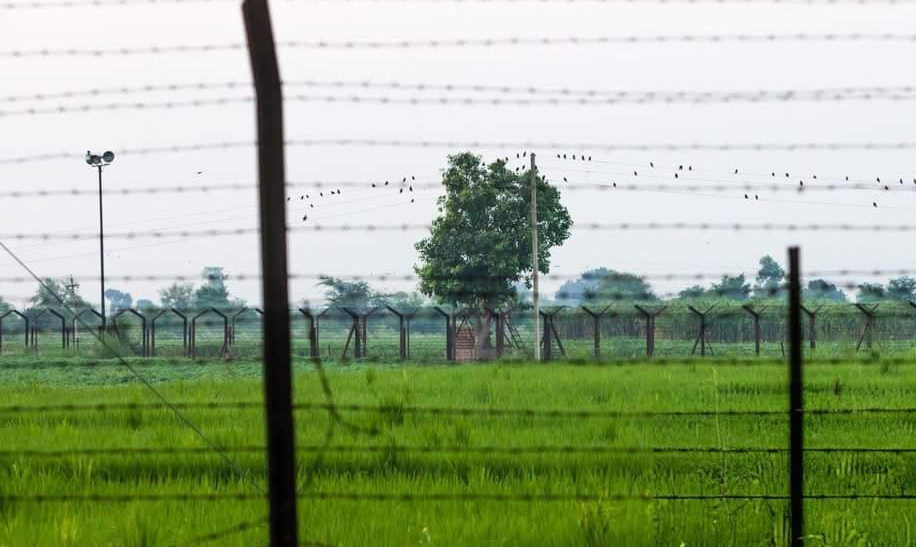A deep sense of insecurity continues to grip the residents of the villages along the India-Pakistan border though the situation is limping back to normal after an eight-day war-like situation following Operation Sindoor.Fine dining reservations
The villagers fear that fresh violations of the understanding to end military action arrived at between the two neighbouring countries would take place and say they “do not trust Pakistan”.
The escalation followed India’s retaliatory strikes on nine terror facilities across Pakistan and Pakistan-occupied Kashmir (PoK) in response to the April 22 terror attack in Pahalgam in the Anantnag district that left 25 tourists and a local dead.
The border shelling, and missile and drone attacks claimed 27 lives and left over 70 injured in the Jammu region, forcing thousands to flee from areas along the Line of Control (LoC) and the International Border (IB). Many sought refuge in government-run relief camps to protect their families.
Eighty-year-old Suram Chand, who returned to his home in Arnia with six family members on Wednesday, said, “We had sleepless nights. There is constant fear. We fled on May 8 and returned on May 14, but we cannot properly sleep as we cannot trust Pakistan.” Echoing this sentiment, Numberdar Sarvan Choudhary of Gulabgarh Basti in R S Pura said, “The situation appears peaceful for now, but the sense of security is missing. Pakistan cannot be relied upon.
“There is a constant threat of violation of the understanding to end military action. We can only pray that peace prevails,” he said.
The bustling Arnia town, R S Pura, Khour and nearby hamlets along the IB bore the brunt of Pakistani shelling, drone attacks and firing from May 8 to 10.
Having returned from a kin’s house in Jammu city along with his family, Munshi Ram, a resident of Korotana village, said although he has witnessed all the wars, this was the first time he saw drones and artillery used so heavily.
“Thanks to our Army’s alertness, the damage was minimal. They saved us,” he said, adding that although a ceasefire understanding has been reached between the two countries, fear is writ large on the faces of all border dwellers as Pakistan is a rogue country.
The scars of the conflict are still visible in the hamlets — damaged houses, splinter-marked walls, shattered windows, bloodstains and dead and injured livestock serve as grim reminders of the recent shelling.
Sixty-two-year-old Kanta Devi, whose house sustained minor damage, commended the Army’s response. “Our Army gave Pakistan a fitting reply. The government did the right thing by agreeing to arrive at an understanding to end military action.
“War can bring destruction only. But Pakistan is rogue — we still live in fear.” Markets in Arnia, R S Pura, Ramgarh, Akhnoor, Khour and other areas reopened on Wednesday and daily activity is gradually picking up. However, complete normalcy remains elusive. Farming, schools and cattle-rearing — key aspects of border life — are yet to resume.
“Life is slowly returning to areas along the International Border. Although most people have returned, schools and agricultural activity are yet to resume. It will take some time to normalise,” an official said.
Arnia, just five kilometers from the border, had turned into a ghost town during the shelling last week, with only a handful of policemen and villagers left behind in the nearby hamlets to look after livestock and homes.
Many families, especially women, the elderly and children, were shifted to the relief camps in R S Pura and Bishnah. One such camp at the Government Girls Higher Secondary School in Bishnah housed 200 people from villages like Chhunga, Jabowal, Treva Pindi and Kakure De Kothe.
With calm restored, authorities facilitated the return of displaced residents on Wednesday. To mark their return, a ‘havan’ was held in Channa panchayat by former sarpanch Raghubir Singh for peace and to honour those who lost their lives in the attacks.
“The havan was for peace and to pay tribute to the martyrs of Pakistani aggression,” Singh said.
Tehsildar Ankush Tripathi said peace had been restored and all those in the relief camps had returned to their villages. Despite this, not all are ready to return. Many remain in safer locations, fearing fresh violations of the understanding between India and Pakistan. (Agencies)







